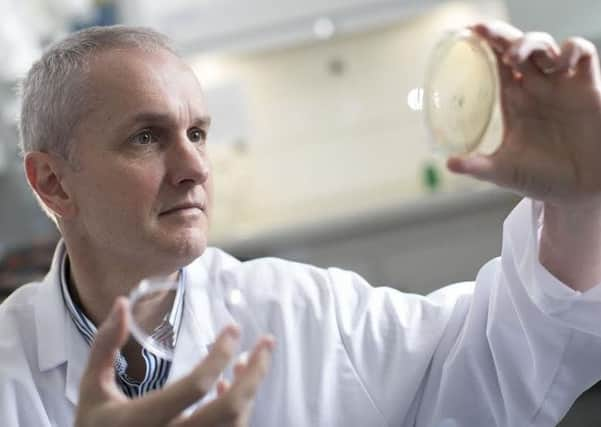Major acne research programme underway at Altnagelvin


Acne vulgaris is a chronic inflammatory skin condition, classified by the Global Burden of Disease Study as the eighth most prevalent disease worldwide. While acne is not a life-threatening condition, it can have profound social and psychological effects when symptoms are severe and scarring occurs.
The new three year Ulster University study, which is based at the Northern Ireland Centre for Stratified Medicine at Altnagelvin, is funded by an £85,000 grant from the British Skin Foundation.
Advertisement
Hide AdAdvertisement
Hide AdUlster University’s Dr Andrew McDowell, who is leading the project, said: “Antibiotic resistance is a major and growing threat worldwide. For many infections, the emergence of superbugs which are resistant to front-line antibiotic therapies is starting to significantly impact on treatment options.
“For patients with acne, the long term use of antibiotics to treat their condition often leads to the emergence of Propionibacterium acnes strains on their skin that are highly resistant to therapy and therefore extremely difficult to eradicate.
“To date, knowledge of the multi-antibiotic resistant strains of this bacterium associated with the severest forms of acne is poor, but this research project at Ulster University will strive to change that.
“Our research will identify patients at risk of not responding to first-line treatments and developing aggressive forms of acne. It will also focus on the development of non-antibiotic-based treatments for the condition. Ultimately, we hope to provide personalised medical solutions for patients to help manage their condition.”